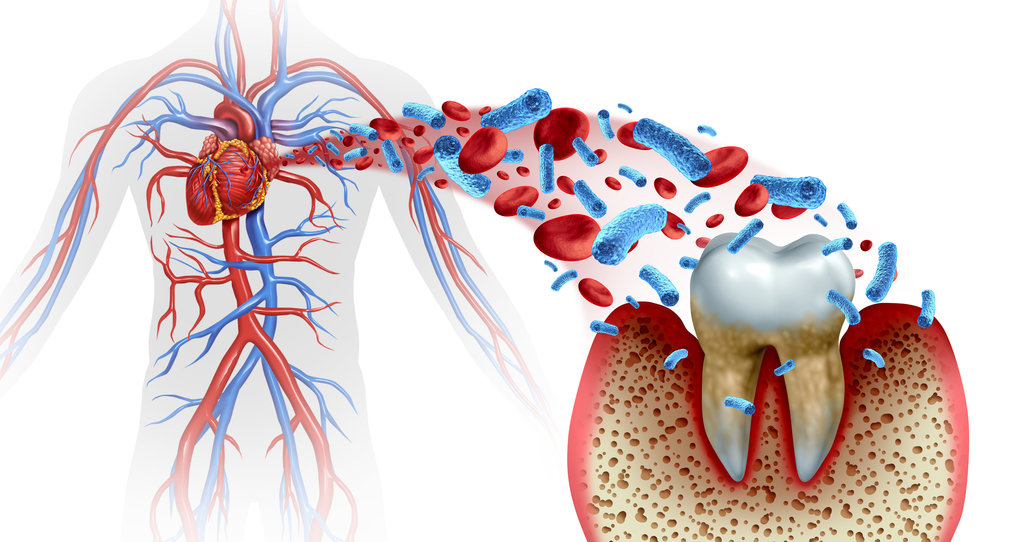When it comes to taking care of your heart, you probably think of eating a healthy diet, exercising regularly, and managing stress. But did you know that your oral health can also play a role in your heart health?
Research has shown a strong connection between gum disease and heart disease. In this post, we’ll explore how poor oral health can affect your heart, the science behind the link, and steps you can take to protect both your smile and your cardiovascular system.
How Are Oral Health and Heart Disease Connected?
The connection between oral health and heart disease isn’t fully understood, but several studies have found that people with gum disease (periodontal disease) are at an increased risk of developing heart disease.
Gum disease, particularly when left untreated, can cause inflammation in the body. Inflammation plays a central role in the development of heart disease, as it can contribute to plaque buildup in the arteries, leading to atherosclerosis — a condition where the arteries become hardened and narrowed, increasing the risk of heart attacks or strokes.
The Science Behind the Link
Here’s what happens:
- Bacteria in the mouth: When you have gum disease, bacteria from your gums can enter your bloodstream through inflamed tissues. These bacteria travel to other parts of the body, including the heart.
- Inflammatory response: Your body’s immune system reacts to the bacteria by producing inflammatory proteins. This chronic inflammation can affect blood vessels and arteries, increasing the risk of blood clots, high blood pressure, and other cardiovascular issues.
- Plaque buildup: As inflammation damages the walls of your arteries, it can contribute to the buildup of plaque, which narrows and hardens the arteries — increasing the likelihood of heart disease.
In short, poor oral health can lead to systemic inflammation, which plays a significant role in the development of heart disease.
Risk Factors That Link Oral Health and Heart Disease
Certain factors can increase the risk of both gum disease and heart disease, including:
Smoking or tobacco use
Tobacco is a major risk factor for both gum disease and heart disease. It weakens the immune system and reduces blood flow to the gums, making it harder for your body to fight infections.
Poor diet
A diet high in sugar and low in nutrients can promote both gum disease and inflammation in the body, making it easier for heart disease to develop.
Diabetes
Diabetes increases your risk of gum disease due to higher blood sugar levels that promote bacterial growth in the mouth. Additionally, diabetes can cause blood vessel damage, increasing the risk of heart disease.
Stress
Chronic stress can affect your oral health by encouraging behaviors like teeth grinding or neglecting regular oral care. Stress can also raise blood pressure, a key risk factor for heart disease.
How to Protect Your Heart Through Better Oral Health
Maintaining good oral hygiene is not only essential for a healthy smile, but it can also lower your risk of heart disease. Here are some important steps you can take:
Brush and floss regularly
Brush your teeth at least twice a day and floss daily to remove plaque and prevent gum disease.
Visit your dentist regularly
Schedule regular checkups and cleanings with your dentist to keep your teeth and gums healthy. Early detection and treatment of gum disease can prevent complications.
Eat a balanced diet
Limit sugary foods and drinks that contribute to plaque buildup. A diet rich in fruits, vegetables, and whole grains supports both oral health and heart health.
Quit smoking
If you smoke, quitting can reduce your risk of both gum disease and heart disease.
Manage underlying health conditions
Control conditions like diabetes and high blood pressure, as they can worsen both oral health and heart health.
Protect Your Heart and Smile with Futch Dental
Your oral health isn’t just about having a bright smile; it’s about overall health. At Futch Dental, we’re committed to helping you maintain both a healthy mouth and a healthy heart. If you’re due for a cleaning or exam, schedule an appointment with us today. Let us help you take care of your smile — and your heart.



